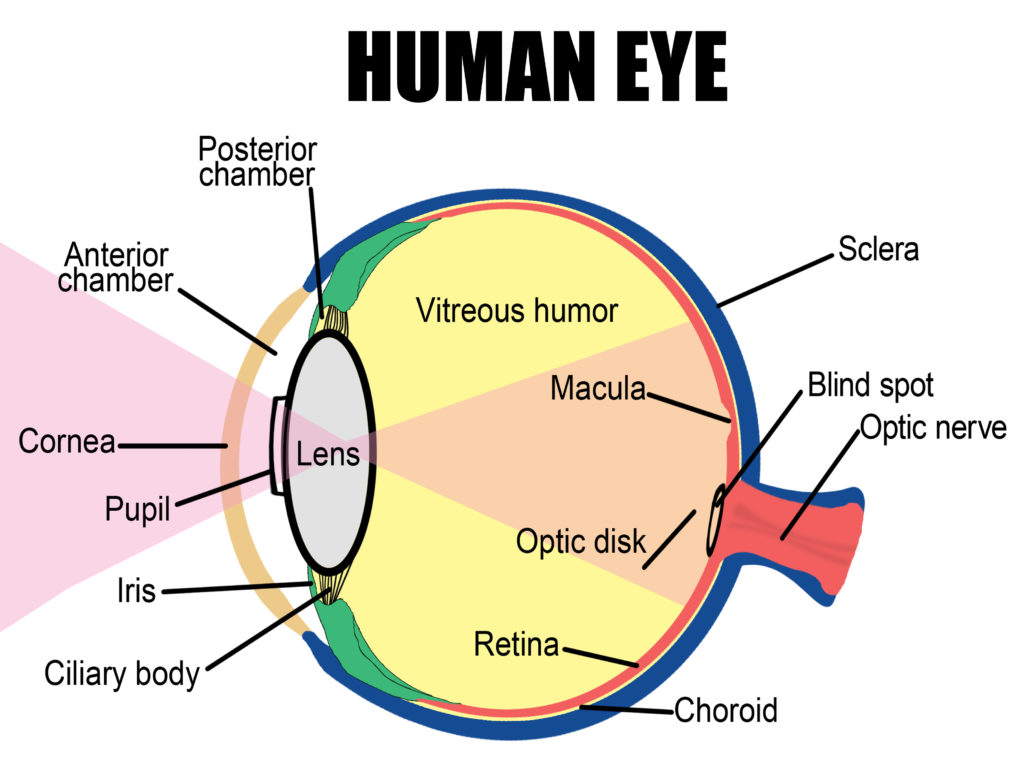What's On This Page?
ToggleWhat if I told you black currants hold promise for your eyesight? Hard to believe right? But it is true.
The retina is a delicate tissue that surrounds the back part of your eye, and it is easily harmed. Taking care of the retina is important for vision, and black currants are rich in compounds that neutralize free radicals which would otherwise assault and destroy your retina! Then you wouldn’t be able to see. Then there’s this compound called “rhodopsin.” Have you heard of it?
Rhodopsin is imperative for light adaptation, so you need it to see in the dark. Black currant supplements are quite popular for this purpose.
Specifically, free radicals are neutralized in the presence of certain pigments (a.k.a. dyes) that are naturally found in colorful fruits. Black currants should be thought of as eye food! These can be eating dried, raw, as jelly or in tea/supplements.
Colored Pigments Benefit Eyesight
When you think of healthy fruits you think of the darkest ones like blueberries, blackberries and black currants. These are often made into jams and preserves, which are truly delicious. But as you know, they can all be eaten raw in your cereal or fruit salad. You can bake with them too. There are supplements as well, and those are widely available. It’s the anthocyanins (a dark bluish black pigment) that impart the health benefits. According to this ARTICLE “these colored pigments are potential pharmaceutical ingredients that give various beneficial health effects.”
That’s how powerful fruit (and vegetable) dyes are! You already know about the orange-colored pigments in carrots that feed your eyes. The β-carotene appears orange to us, because the red and yellow colors are reflected back to us that way from the retina. Speaking of the retina, black currant extracts have been studied and found to protect endothelial cells against vascular failure, and to ramp up nitric oxide production in the retina. All good!
This is very important, and the endothelial cells are the ones you want to protect. Let me back up… you have blood vessels all over your body. There is a single cell layer that is on the outside of your blood vessels called the “tunica externa” (collagen is part of it’s makeup) and a single cell layer lining the inside of your blood vessels, called the “endothelial” cells. It’s these cells that we’re talking about and they control what goes in and out of your bloodstream.

Optic Nerve is Cranial Nerve II
Black Currants Have Medicinal Benefits
Black currants have been studied for its anti-viral properties, and it’s been found to have a good effect on the body’s immune function. This was determined in several studies and so including these in your diet could be helpful to your immune function.
They stimulate T helper cell activity, which is an immune function that is helps them become cytotoxic and destroy pathogens.
Eating foods with black currants, or supplementing with an extract of it helps with dryness in the eye, as well as intra-ocular pressure. A 2015 study found that black currants increase blood flow to the optic nerve which enables vision. In various other trials, black currants
In various studies, black currant anthocyanins were shown to increase nourishing blood flow to the eyes in patients with glaucoma, reduce intra-ocular pressure in the eye, and slow down visual field deterioration. In one such Japanese STUDY the researchers concluded that it was indeed helpful. Here in their own words,“our present results suggest that BCACs caused normalization of serum ET-1 levels, and this may modulate ET-1-dependent regulation of the ocular blood hemodynamics.”
Anthocyanins (again, a dark pigment found in some fruits/vegetables), have a relaxing effect on myopia. According to this ARTICLE published in 2019, they can cross the blood-brain barrier, and the blood-retinal barrier.
Once inside, they have “a relaxing effect on ciliary muscle which is important to treat both myopia and glaucoma. And anthocyanins stimulate the regeneration of rhodopsin in frog rod outer segments. Furthermore, AC could inhibit the axial length and ocular length elongation in a negative lens-induced chick myopia model… Anthocyanin intake improved dark adaptation and transient myopic shift and the improvement on retinal blood circulation in normal tension glaucoma patients.”
5 Reasons Black Currants Work!
-
Rich in Anthocyanins: Black currant extract contains high levels of anthocyanins, which are powerful antioxidants. These compounds help protect the eyes from oxidative stress and free radical damage, which can lead to age-related eye conditions.
-
Improves Blood Flow to the Eyes: The anthocyanins in black currant extract have been shown to improve blood circulation, including in the tiny blood vessels of the eyes. Better blood flow can enhance the delivery of oxygen and nutrients to eye tissues, supporting overall eye health.
-
Reduces Eye Fatigue: Studies have indicated that black currant extract can help reduce eye fatigue, especially in people who spend long hours staring at screens. It may help improve the adaptability of the eyes to light changes and reduce eye strain.
-
Supports Night Vision: Black currant extract has been found to enhance night vision by improving the ability of the eyes to adjust to darkness. This is particularly beneficial for people who drive at night or in low-light conditions.
-
Protects Against Eye Diseases: The anti-inflammatory properties of black currant extract may help protect against certain eye diseases, such as glaucoma and cataracts, by reducing inflammation and oxidative damage in the eyes.
Medications and Prescription Eye Drops
Please don’t misconstrue this as a reason to stop your Xalatan, Vyzulta, Zioptan, Travatan or Lumigan. Those are brand names of prescription eye drops. But if you do take them, ask your doctor if black currants are good for you, and if you can try an oral dietary supplement for your eyes that includes them, or eat them! I can’t think of a reason why not, however, I’m not able to advise you on this. Like all supplements, there are pros and cons, just like with all medications. But I can’t think of a reason as I write this, why it would be bad, unless you’re allergic to them.
In addition to a high content of anthocyanins, black currants are rich in natural vitamin C, iron, calcium, vitamin A and a smidge of Vitamin E. They are full of antioxidants which can help maintain the function of your immune system, soothe eyes, and even a sore throat.
As for other health benefits, studies have shown that black currants have the ability to help with insulin resistance.
Black currants contain some GLA (gamma-linolenic acid) and this compound converts in your body to DGLA. Through another series of pathways in your body, the DGLA gets impacted by your COX enzyme and out of that emerges PGE1 and Thromboxane A1, two anti-inflammatory compounds that naturally seek to improve vasodilation in the body (blood flow) and prevent clumping.
This is why some people with rheumatoid eat black currants. It can be helpful for inflammation of the joints, as well as stiffness. As for the eye, it could support the health of the optic nerve by allowing blood to flow more easily through the capillaries.
There are some interesting studies on breast cancer and black currants. In breast cancer patients who took GLA, there was a reduction in side effects from tamoxifen, plus a better therapeutic response, however please ask your oncologist if this is right for you.

Suzy Cohen, has been a licensed pharmacist for over 30 years and believes the best approach to chronic illness is a combination of natural medicine and conventional. She founded her own dietary supplement company specializing in custom-formulas, some of which have patents. With a special focus on functional medicine, thyroid health and drug nutrient depletion, Suzy is the author of several related books including Thyroid Healthy, Drug Muggers, Diabetes Without Drugs, and a nationally syndicated column.


